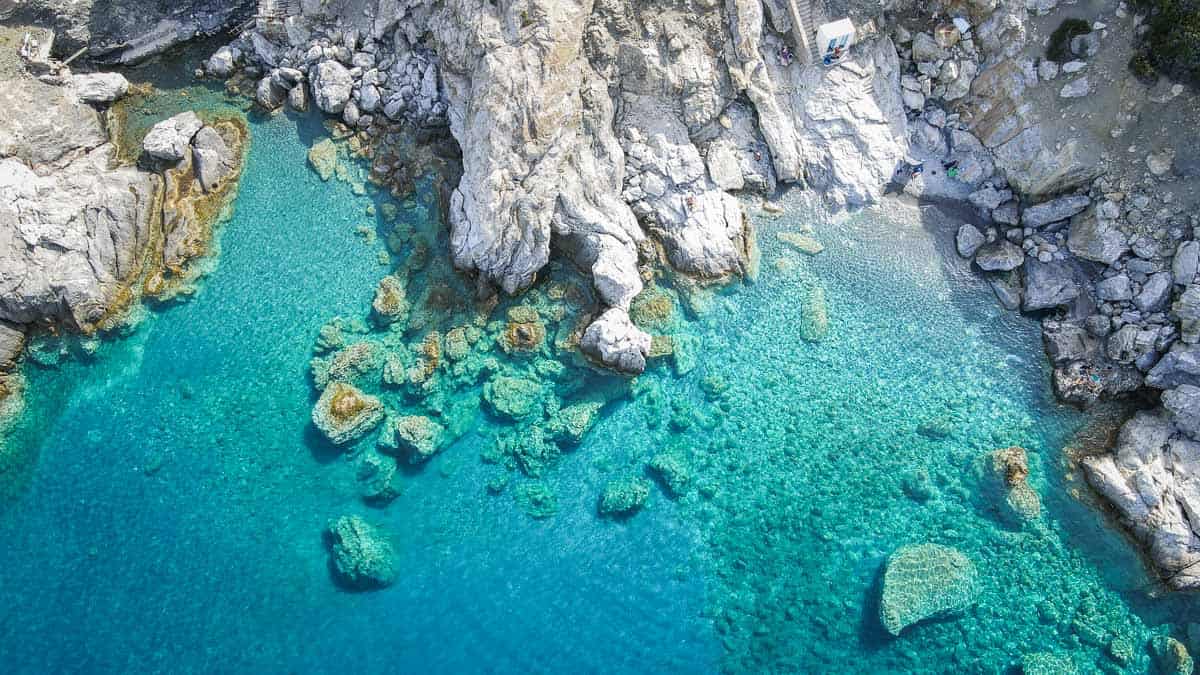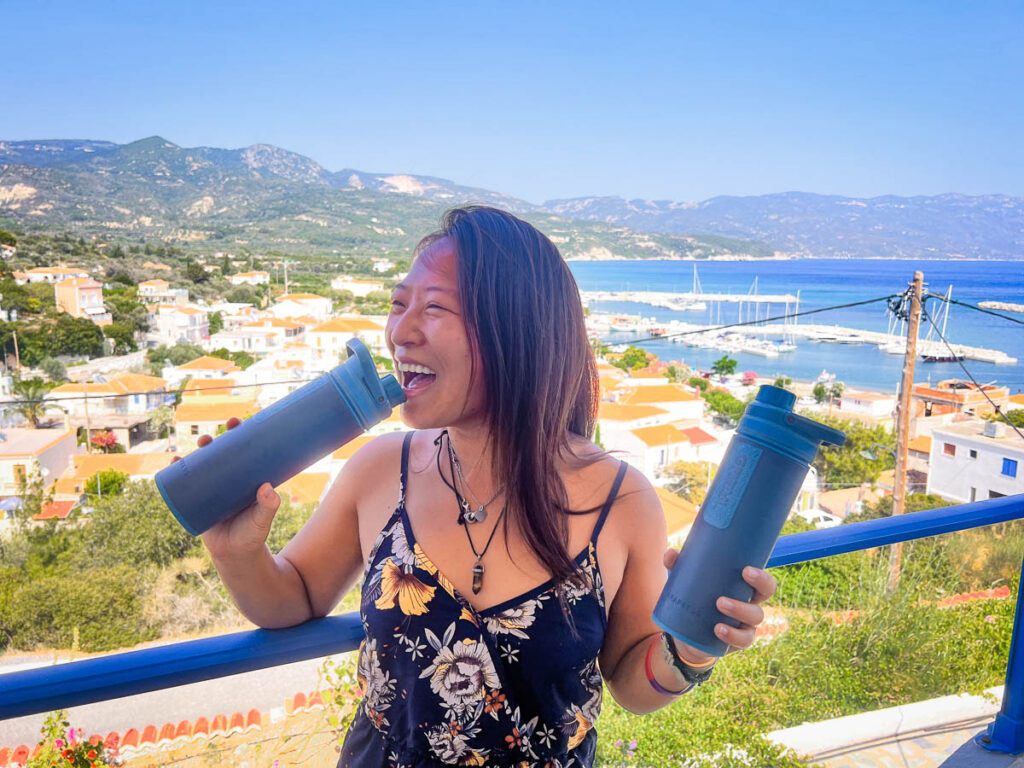Tap Water in Greece: Can You Drink the Water in Greece?

Greece is a popular tourist destination known for its azure beaches, ancient ruins, and island hopping. However, when it comes to drinking water, you may be wondering, “Is it safe to drink tap water in Greece?”
The answer depends on the location and is mostly no, except for major cities like Athens and Thessaloniki.
No matter where you’re going in Greece, you don’t want to mess up your stomach over some bad water, so these are the things you should know about drinking water in Greece.
I’ve been in Greece for almost two months and mostly rely on bottled water. But, to save some cash or on those super lazy days when I don’t feel like hitting the grocery store, my trusty sidekick has always been my Grayl Geopress.
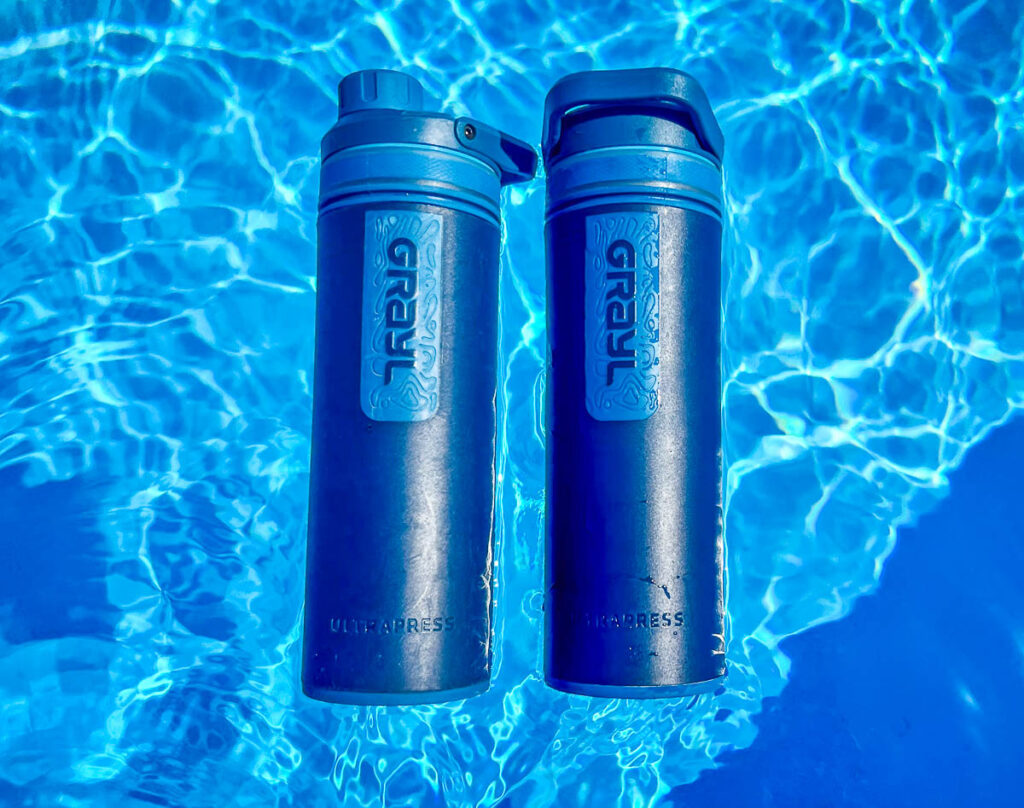
You mostly can’t Drink the tap in Greece!
So what’s your best option? Buying bottled water or try the Grayl Geopess Water Purifier
This travel gadget has been with me for years, faithfully purifying even tap water in India. And I didn’t get sick.
So, if that doesn’t prove how amazing it is, I don’t know what does!
Easily Plan Your Trip with Some of My Favorite Resources Below!
► Cheapest Accommodation– I Always Use Booking.com
► Adventurous Tours– I Recommend Viator.com
► Car Rental– I Always Use DiscoverCars.com
Water Safety: Can you Drink Tap Water in Greece?
When it comes to tap water safety in Greece, the answer is not a simple yes or no. According to European Union standards, technically the water in Greece is safe to drink. However, it’s probably a good idea to go for bottled water because of its high mineral content, which might upset your stomach. Plus, in a lot of places, it just doesn’t taste great.
Tap water is only reliably drinkable in Athens and Thessaloniki. However, the taste may vary depending on the condition of the plumbing system. While the flavor may not always be pleasant, the water quality itself poses no health risks.
When it comes to most other places in the countryside or islands, it’s probably best to play it safe and opt for drinking bottled water instead. Bottled water is widely available in Greece, is affordable and 100% safe to drink.
✅ Removes all Pathogens (Bacteria & Viruses)
✅ Super Fast & Easy to Use
✅ Purify Water Anywhere
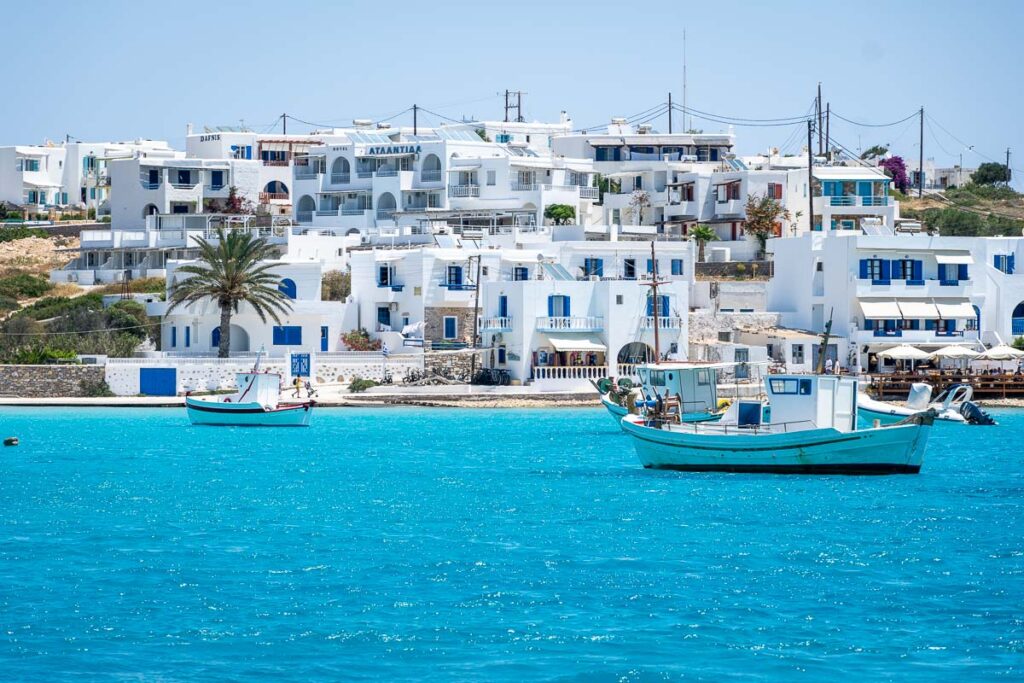
Understanding Greek Water Sources
Greece gets its drinking water from both surface water and groundwater sources. The country has a complex water supply system that includes natural sources like rivers, lakes, and natural springs, as well as man-made reservoirs, water treatment facilities, and desalination plants.
The water quality in Greece can vary depending on the source and location. While tap water in most urban and tourist centers is considered safe to drink, there are some areas where the water quality may be questionable.
All in all, Greece’s water supply system is pretty solid and dependable. That being said, if you’re in certain remote areas or on smaller islands, it’s better to be cautious when it comes to drinking tap water. It’s always a good idea to check with the locals or hotel staff to make sure it’s safe before taking a sip.
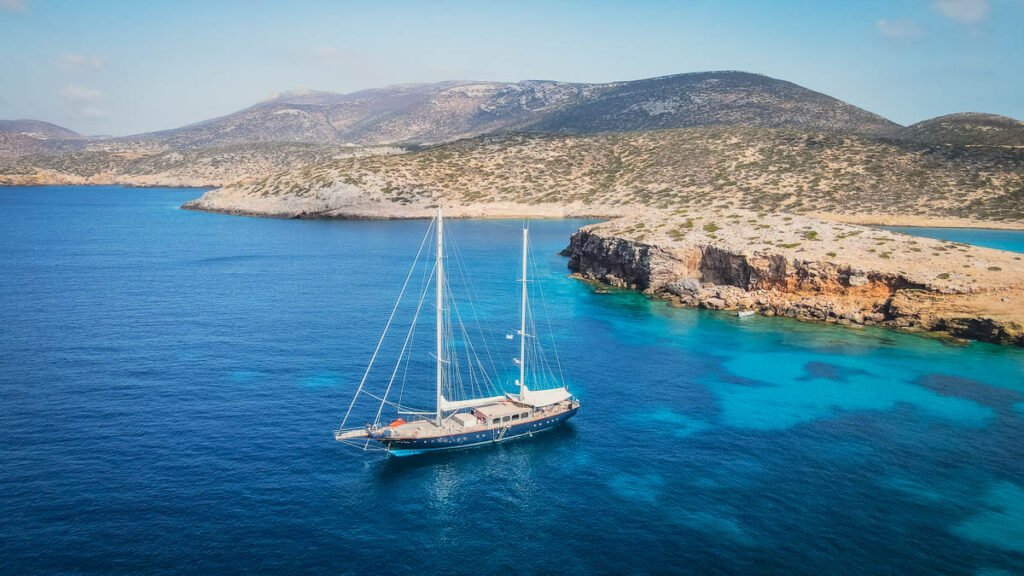
Bottled Water in Greece
Water in Supermarkets
Bottled water is widely available in Greece, and you can find it in most convenience stores, grocery stores, and kiosks.
The price is regulated, so a 500ml bottle will cost €0.50, and 1L will cost €1.00. If you’re watching your budget and staying in one spot for a bit, grab a 6L pack of bottled water at a supermarket or convenience store, which will run you about €4.50.
Water in Restaurants
Is water free in Greece restaurants?
In Greece, most restaurants will bring a bottle of water to your table without asking. It’s not free but still relatively inexpensive. But, unlike the regulated supermarket prices, restaurants can charge their own prices for bottled water. Usually, the price of a bottle of water is still around €1 for a liter, but fancier places might go up to €3.
I’ve never personally seen people ordering tap water or asking for it in restaurants, but I’ve heard you can in the larger cities.
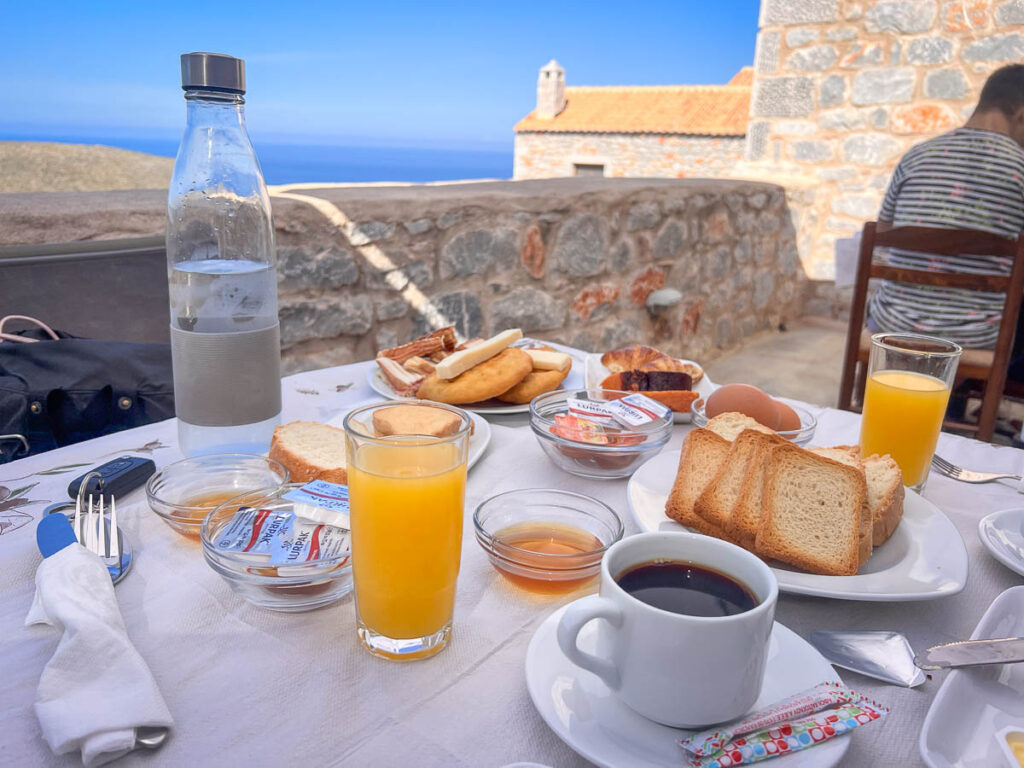
Water in Hotels
Most hotels in Greece usually give their guests one or two complimentary bottles of water upon arrival. Many also have water bottles available for purchase.
Can you drink water in Greek hotels?
You can drink the tap water in Greek hotels in big cities or other known places where the water is reliable and clean. However, sometimes, due to old piping, it might taste a bit metallic.
Can I Drink Ice in Greece?
A lot of travelers say you should be wary of ice because it might give you an upset stomach, but that’s not entirely true. Normally in restaurants, vendors get ice cubes from reliable sources like ice cube manufacturers, supermarkets, or they make them with safe drinking water from ice cube makers.
If you’re making ice cubes yourself in your place, go for bottled water because ice won’t eliminate contaminants or kill bacteria.
Is it Safe to Brush your Teeth with Tap Water in Greece?
It is generally safe to brush your teeth with tap water in Greece. However, if you are in an area with questionable water quality or you have a sensitive stomach, it is recommended to use bottled water to brush your teeth.
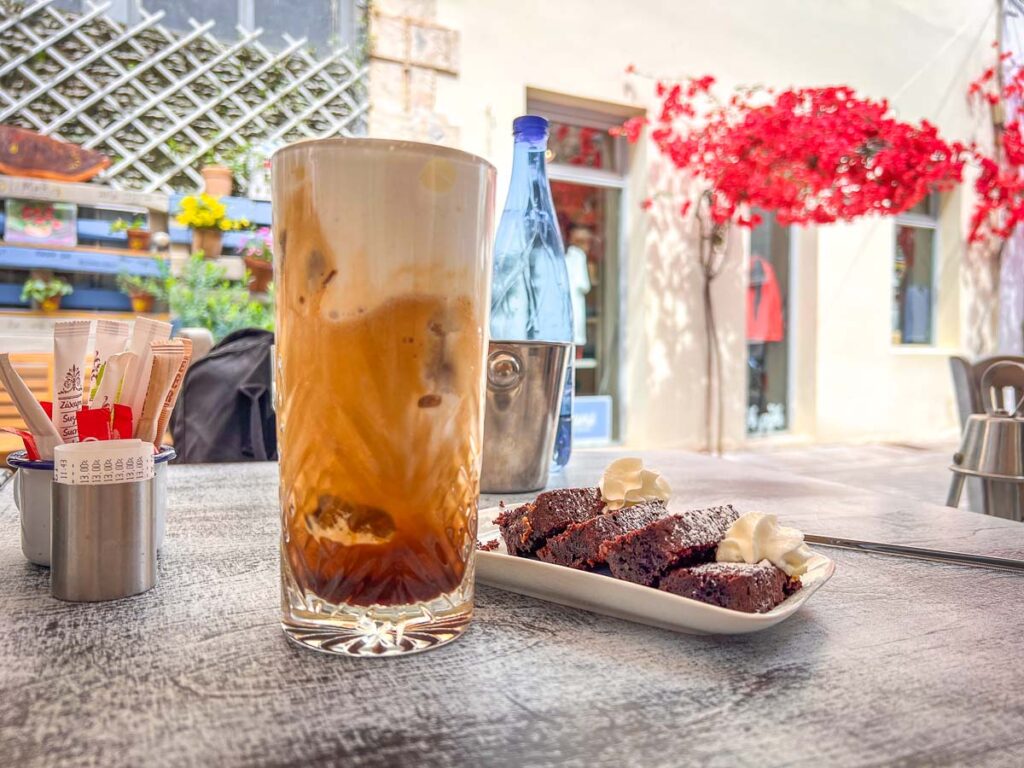
Potential Health Risks
While Greece is generally a safe destination for travelers, there are some potential health risks to be aware of when it comes to drinking water.
Tap water quality in Greece can vary. In some areas, tap water is considered safe to drink; in others, very high mineral content may cause upset stomachs. And just boiling the water is not enough.
On many small islands, even using my amazing Grayl filter, it tastes so bad that it is undrinkable.
Using tap water for brushing your teeth or washing fruits and veggies is usually okay. But if hygiene is a top concern for you, there’s nothing wrong with using bottled water in these situations too.
On the same topic, be cautious about consuming food from street vendors or other sources that may not meet food safety standards. Check out these food tours in Athens to find out the best places to eat when you first arrive.
What are the risks of drinking tap water in Greece?
The main risks associated with drinking tap water in Greece are the presence of bacteria or other contaminants. These contaminants can cause gastrointestinal health issues such as diarrhea, vomiting, and stomach cramps.
Which parts of Greece can you drink tap water?
Check out if clean water is available on this list of the most popular Greek locations.
Is the Water Safe to Drink in Greece?
In mainland Greece, tap water is generally safe to drink in the major cities of Athens and Thessaloniki.
However, in rural areas close to agricultural sites, industrial centers, or where wastewater is not properly treated before entering the public supply, drinking tap water can be risky. Depending on the source, it can contain high levels of minerals which can cause digestive issues.
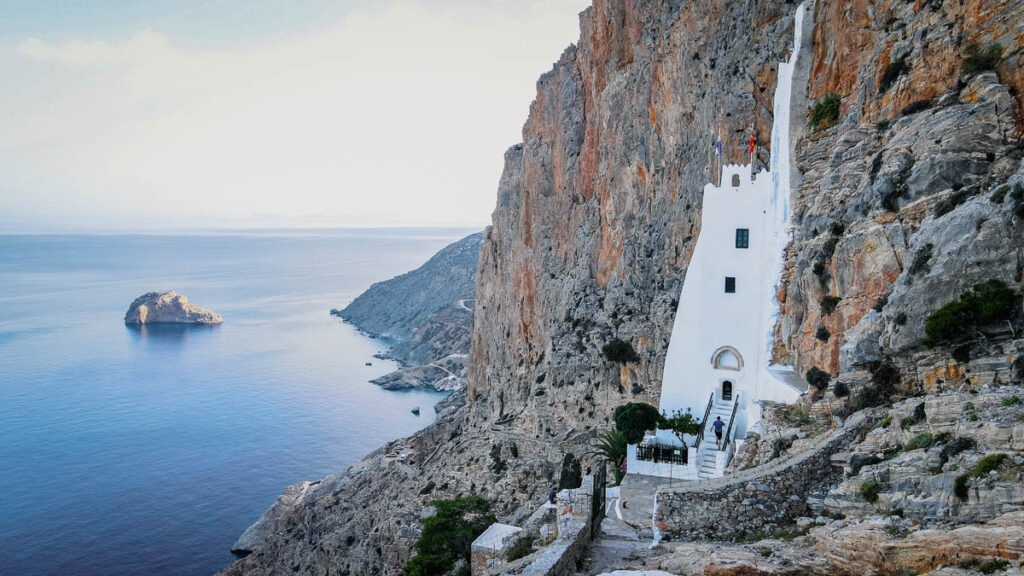
Can you Drink Tap Water in Athens?
√ Yes, Athens has drinkable tap water. In fact, tap water in Athens is considered to be some of the best quality water in the country.
Can You Drink Tap Water in Santorini?
X No, it’s not recommended to drink tap water in Santorini. Most locals rely on bottled water for drinking and cooking.
Can You Drink Tap Water in Crete?
√ Water is potable in Crete, but the mineral content is so high that it’s best to stick to bottled water if the taste bothers you.
Can You Drink Tap Water in Mykonos?
X No, it’s not recommended to drink the tap water supply in Mykonos. I’ve tried filtering the water here, it just tastes way too bad. Unfortunetly, because Mykonos can be expensive, I have paid for €5 water in clubs.
Is Tap Water Safe in Rhodes?
X Like most islands, it’s best to buy bottled water in Rhodes.
Can You Drink Tap Water in Corfu?
√ Yes, tap water is safe to drink in Corfu. But, in most areas of the island, it’s recommended to go for bottled water. The water is drinkable, just a bit “hard” with lots of minerals.
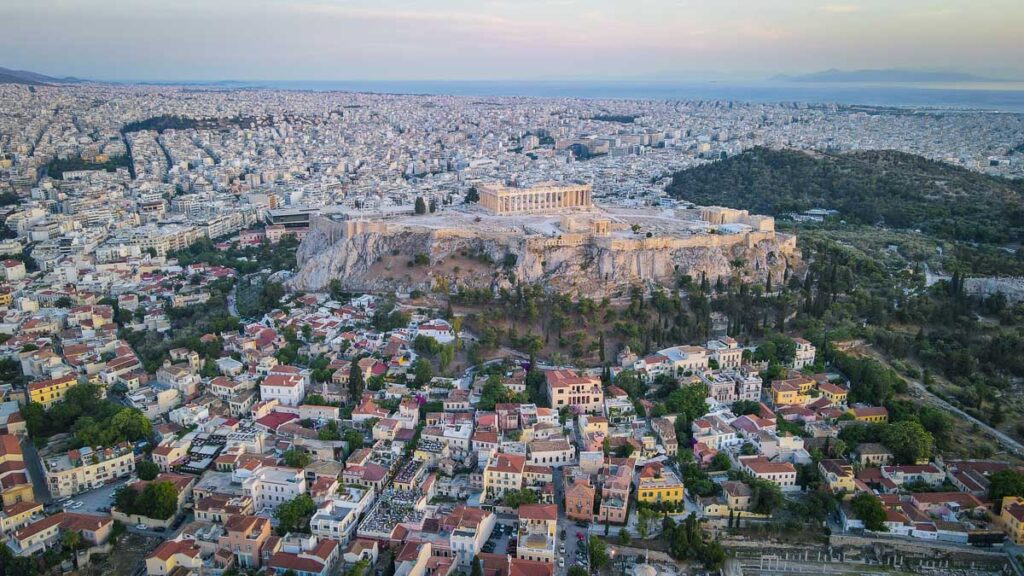
Water Safety Tips for Travelers in Greece
When traveling to Greece, take precautions to ensure that the water you consume is safe and free from harmful bacteria. Here are some water safety tips for travelers in Greece:
- Drink bottled water: It is recommended to drink bottled water in Greece to avoid the risk of consuming contaminated water. Make sure the bottle is sealed before purchasing it.
- Use tap water for hygiene purposes only: Use tap water for brushing teeth or washing hands, but avoid consuming it.
- Be cautious with ice: For people with sensitive stomachs, when ordering drinks, ask if the ice is made from bottled water. If not, it is better to avoid it.
- Avoid drinking from natural water sources: Do not drink water from rivers, lakes, or other natural sources, as it may contain harmful bacteria, even if it has clear water.
By following these water safety tips, travelers in Greece can ensure that they stay healthy and avoid any water-related illnesses.
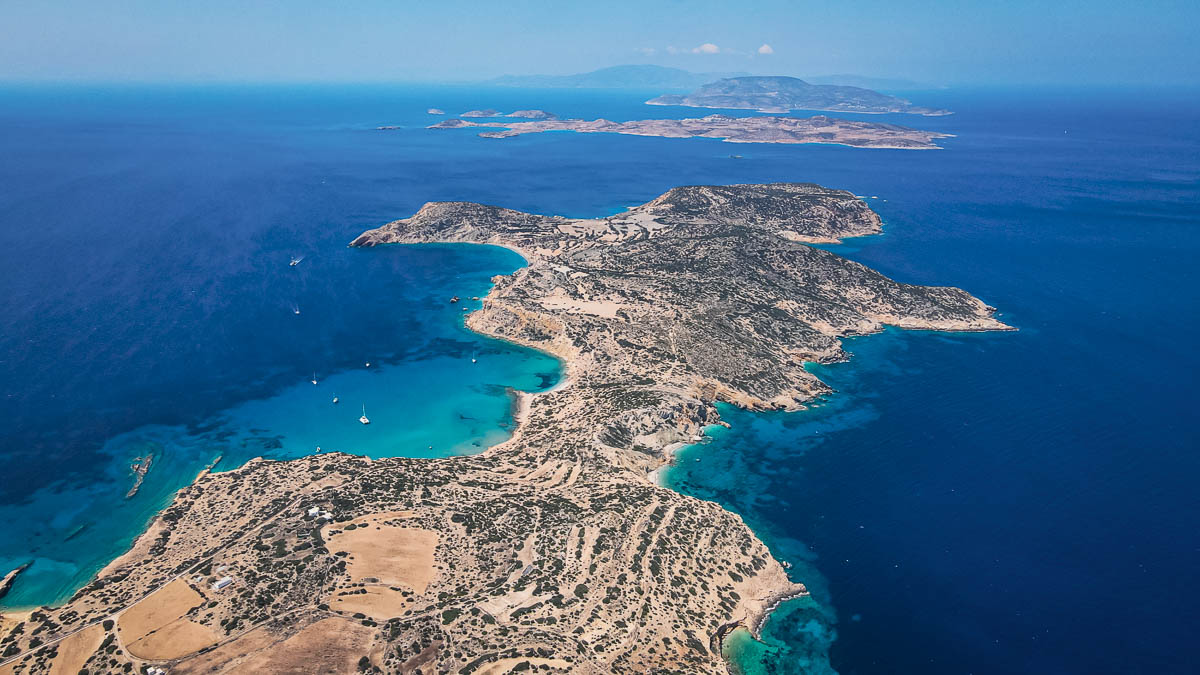
Final Thoughts: Can you Drink the Water in Greece?
To wrap things up, the taste and safety of tap water in Greece can differ depending on where you are. Generally, tap water in urban areas is safe to drink, but not in rural areas or the Greek islands.
To avoid adding to the waste of plastic bottles, grab a reusable water bottle and fill it up with tap water in places where it’s safe to do so. Even better if it’s a reusable bottle like the Grayl Geopress that filters enough to let you drink from any water source.
Where Next in Greece?
I spent almost two months going around all of Greece. Check out these other posts to see if any of these destinations pique your interest.
- 16 Must-Visit Athens Historical Sites
- 8 Delicious Food Tours in Athens
- 11 Best Athens Private Tours
- Koufonisia Island Travel Guide
- Amorgos Island Travel Guide
- 7 Best Mykonos Private Tours
Have Travel Questions About Greece? Maybe I’ve Answered Them
| TRAVEL RESOURCES |
| ✈️ Find the best tours and activities with Viator to cross off your bucket list and create unforgettable memories 🏘️ Book your accommodation with Booking.com in advance and check availability on the days of your travels. 🧾 Rent a car in advance with Discovercars for those epic road trips at the best price. |
Catherine Xu is the founder and author of Nomadicated, an adventure travel blog that helps travelers cross off their bucket list. Since discovering traveling in 2015, she has lived and journeyed to 65 countries across 5 continents and vanlifed the west coast USA for 2+ years. These days, she splits her time in Southeast Asia and California while sharing her travel stories and resources based on first-hand experiences. Catherine's other works has been referenced in major publications like MSN, Self, and TripSavvy.

